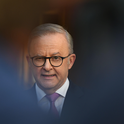As the latest Tory immigration legislation proceeds this week, claiming to be the toughest ever on asylum seekers as Suella Braverman seeks to reduce net migration to “tens of thousands”, it is time for a few home truths on the reality behind the deception. Here are five.
First, despite Braverman’s anti-immigrant rhetoric, both asylum and immigration are running at near record levels. This isn’t because of the small boats, but mainly due to overseas students and a plethora of official asylum and immigration schemes put in place by this government.
According to the ONS, more than a million immigrants arrived last year and net migration—the figure allowing for departures—was 504,000. These are record numbers since the ONS started gathering figures in 1964. The last time net migration to the UK was close to this level was during the fall-out from the Syrian war in 2015, when the number was 336,000—a key factor in the Brexit referendum a year later.
This increase is driven by a rise in the number of non-EU students coming to the UK, as well as by hundreds of thousands of refugees from Ukraine, Afghanistan and Hong Kong. Almost all of them are perfectly legal.
Second, some of the biggest components of this new immigration are barely debated, let alone disputed. More than a hundred thousand Hong Kong refugees have arrived since 2021, when the UK government created a new route for them to gain British citizenship. There have been no Daily Mail or Telegraph campaigns against the Hong Kongers. The Tory right wing welcomes them as entrepreneurial refugees from oppression by Xi Jinping’s Communist tyranny.
It is the same with overseas students, who participate in one of modern Britain’s most successful industries—higher education. Some 463,000 overseas students arrived last year, the highest annual number on record. A lot of these will end up staying for many years, even permanently, with little or no fanfare.
Third, the most significant immigration change in recent years, apart from the overall rise in numbers, is a dramatic shift from EU to non-EU migrants. For the first time since the EU was founded in 1993, last year more EU nationals left the UK than arrived. Net migration of EU nationals was minus 51,000 for the year up to June 2022. So the impact of Brexit wasn’t to reduce immigration—just immigration from Europe.
Fourth, there is an administrative crisis regarding refugees coming in small boats across the Channel and claiming asylum at our borders. The backlog in dealing with such cases is running at more than a hundred thousand, double the level of 2021. Yet, when decisions are taken, the majority are approved, not rejected. Part of the reason Braverman is so keen on the Rwanda scheme is that the asylum seekers without visas, whom she dubs “illegal”, are mostly being allowed to stay, which is a huge incentive to make the perilous Channel crossing. Rwanda also distracts attention from this administrative chaos, which is her responsibility.
Fifth, the Rwanda scheme, even if ultimately judged to be legal, will be entirely peripheral except in one respect—the pressure from the Tory right wing to curb or even leave the European Convention on Human Rights, which they think is necessary to make it possible. I don’t think this latest manifestation of the Brexit virus will succeed, but the political battle will be intense. And it will largely distract from the reality of today’s mass immigration. It is politics by deception.













